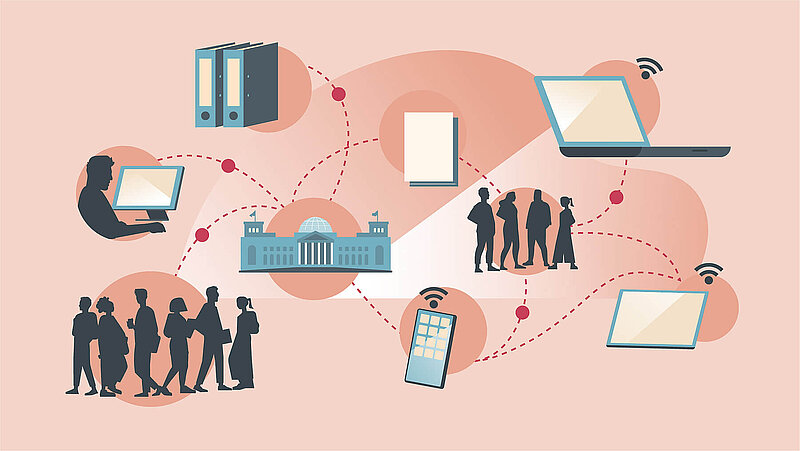
Gerhard Hammerschmid and Thurid Hustedt argue that sector-switchers can make distinct contributions to Germany's public administration if certain conditions are fulfilled.
Download the study here (in German language).
Germany's public administration is facing challenges when it comes to digitalisation and new forms of work. The German federal government has recently established new initiatives such as the 4Germany Fellowship Programme and the Digital Transformation Team, which aim to attract talent from the private sector in the hope that their valuable skills and experiences will boost Germany's digital transformation. It is often claimed that individuals moving from the private to the public sector – aka “sector switchers” could be the key to navigating the digital transformation of Germany's public sector.
Hertie School Professors Gerhard Hammerschmid and Thurid Hustedt have conducted the first systematic survey of sector-switchers in the German public administration. They investigated the motives and experiences of sector-switchers to understand what contribution they could make to Germany’s public administration.
From July 2019 to May 2020, the authors conducted 25 interviews with sector-switchers who made the transition to the public sector in an executive role. This also included individuals who had returned to the private sector after a stint in the public realm. The interviews explicitly excluded political functionaries such as ministers or parliamentary state secretaries as well as more peripheral parts of the public sector such as public companies.
The study concludes that sector-switchers can make valuable contributions to public administrations and, under certain conditions, fill existing gaps. Their time in the private sector has left these individuals with a distinct perspective on the public administration as well as its functional mechanisms, strengths and weaknesses. They bring important methodological competencies in project management, as well as other management skills such as change management. Second, they can influence the culture through their private sector understanding of management and leadership, which often leads to a less hierarchical and more feedback-oriented leadership culture. In addition to that, they can initiate change processes due to their outsider role and lack of organisational blindness.
Given their unique background, they are also destined to build bridges within the administration as well as between the public sector and the private sector. For the sector-switch to be successful and have a positive impact, the study finds a need for clear and transparent rules regulating inter-sectorial change, cleary defining the sector-switcher’s role in the new organisation. Second, the support of public employers or respective political and/ or administrative leadership is required to institutionally reinforce inter-sectorial mobility and individual sector-switchers. Third, sector-switchers need to have insights into the functional mechanisms, structures and processes of the public administration as well as an understanding of the administrative culture. They should support the fundamental values of the public service such as impartiality, fairness, integrity and be prepared to immerse themselves in the respective organisation.
Please download the study to learn more (in German language).
Gerhard Hammerschmid and Thurid Hustedt presented the study at the Creative Bureaucracy Festival 2020. You can watch the recording below.
